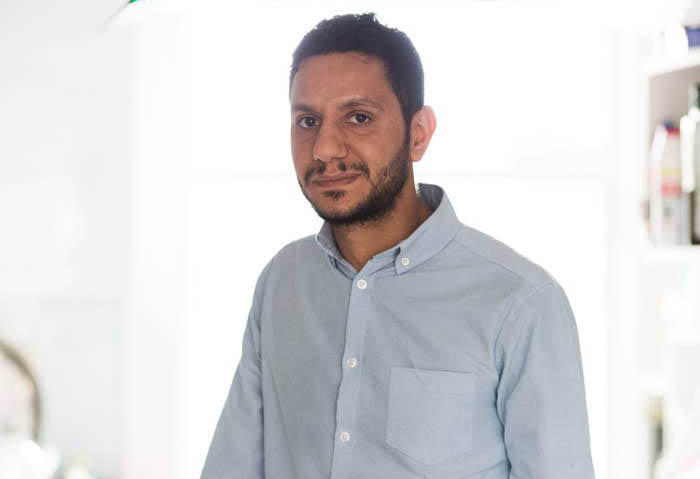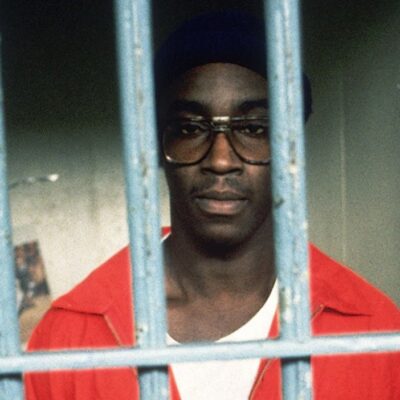Every time I look in the mirror, a curved scar on my forehead reminds me of the night that changed my life forever. When I run my fingers across the mark, I see an ocean of red and white flags and hear thousands of voices crying out for freedom. I also smell the acrid scent of tear gas and feel the sharp pain of policemen’s boots against my head.
The events of the Arab Spring in Bahrain, which began 10 years ago this month, are burned into my memory. Looking out over the mass of smiling people marching together, I tasted freedom for the first time. The New York Times estimated that around 100,000 people joined the protests (out of a citizen population of just over 500,000). As triumphant crowds celebrated in Cairo and Tunis, it felt like the winds of change were finally blowing through Bahrain too.

The feeling would not last. On Feb. 14, 2011, Bahrain’s uprising suffered its first casualty. The cruel killing of 21-year-old Ali Mushaima, shot in the back when security forces opened fire on peaceful demonstrators, shocked the nation. I marched with his funeral procession, among thousands of mourners, to Manama’s Pearl Roundabout, the symbolic center of Bahrain’s uprising.
As demands for democratic reform became calls for an end to the 200-year-old al-Khalifa monarchy, the government deployed the army against its own people. I was among thousands arrested and tortured. Several prominent Bahrainis were killed in custody. In the revolution’s dying days, Bahrain’s rulers revealed the true brutality of their regime.

Join the Reprieve US community
Sometimes, we find out a person is facing imminent execution and we have just 24 hours to take action to save them.
Sign up hereSince the uprising, any vestige of pro-democracy sentiment in Bahrain has been ruthlessly suppressed. Unlicensed gatherings of more than five people are illegal under Bahraini law, and even mild criticism of the government can land you in prison. All independent media and opposition political parties have been outlawed, while brave leaders of the uprising such as Abduljalil al-Singace and Abdulwahab Husain remain behind bars, a reminder to any Bahraini who dares to dream of freedom.
Despite this, Bahrain’s rulers remain terrified of their people and have gone to extreme lengths to prevent anyone marking the Arab Spring’s 10th anniversary. Since Feb. 7, Bahrain has arrested at least 15 children for joining protests. One of the youngest spent his 12th birthday in prison. These children and their parents have told me they were beaten and threatened with rape and electrocution to coerce them into signing confessions.
Ali Mushaima’s 57-year-old father, Abdulhadi, was also jailed last week after being convicted for attending a protest in 2019. While his son’s killers have never been brought to justice, Abdulhadi has faced years of harassment from Bahrain’s corrupt judiciary. The timing of his conviction, just days after the anniversary of his son’s murder, is clearly no coincidence.
This repression is an acknowledgment of weakness, not a show of strength. Bahrain’s monarchy has long been propped up by wealthy Gulf neighbors and powerful friends in Washington and London. In Barack Obama’s memoir, “A Promised Land,” he wrote that supporting Bahrain’s uprising in 2011 would “risk our strategic position in the Middle East.”
This pernicious influence became particularly evident under President Donald Trump, who made no secret of his enthusiasm for authoritarianism. In his first meeting with Bahrain’s King Hamad bin Isa al-Khalifa in 2017, Trump made clear human rights were no longer on the agenda. Within days, Bahraini police opened fire on a peaceful sit-in in the village of Duraz, killing five in the worst act of political violence in Bahrain since the uprising. It marked the beginning of a vicious crackdown that continues to this day.
Will President Biden pursue a different course? The early signs are encouraging. In his first weeks in office, he has taken a strong stance on the Gulf, freezing arms sales to Saudi Arabia, ending U.S. involvement in the war in Yemen and committing to “standing up for democracy and human rights around the world.”
In imprisoning children and threatening them with torture, the Bahraini regime is showing its people that it will not tolerate dissent — and showing the world its true face. The acquiescence of successive U.S. administrations has taught the government that it need not fear repercussions. It is time for Biden to put geopolitics aside and let the people of Bahrain decide their own future.
This opinion piece by Sayed Ahmed AlWadaei, Director of Advocacy of the Bahrain Institute for Rights and Democracy (BIRD), was originally published in the Washington Post on February 23, 2021. BIRD is a partner of Reprieve.
